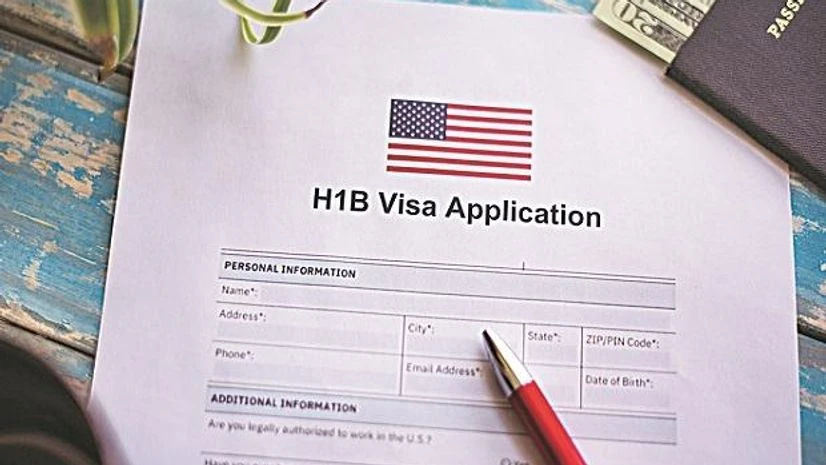An Indian politician was implicated in an immigration scam involving the US H-1B visa lottery system. Kandi Srinivasa Reddy, previously a Congress candidate for the Telangana Assembly elections, has been accused of exploiting a loophole in the lottery process by making multiple registrations, according to a report by Bloomberg.
What is the US H-1B visa lottery?
The H-1B is a United States visa that comes under the Immigration and Nationality Act. It allows employers in the US to hire foreign workers in specialty occupations for a specific time. In terms of guest worker numbers, it is the largest visa category in the US. Fields that typically qualify under this visa include tech, finance, engineering, etc.
To qualify for the visa, applicants must have a job offer from a US employer and proof of qualification. The employer must also provide proof that there is a lack of qualified candidates in the US for the role.
As there is a high demand for this visa, the US has a cap for the amount that can be issued per year. When the number of available slots is full, a “lottery” system is held in April to randomly select applications to be processed.
What was the H-1B visa scam?
The scam revolves around the H-1B visa lottery system, which was streamlined in 2020 to simplify the application process. However, this change also opened up opportunities for exploitation.
The scam operated through ‘multiple registrations’. By submitting numerous applications under different company names, the chances of being selected in the lottery significantly increased.
More From This Section
Numerous companies linked to Reddy, such as Cloud Big Data Technologies LLC and Machine Learning Technologies LLC, reportedly used the multiple registration tactic to increase their chances of securing visas.
By submitting multiple entries for the same worker, they managed to generate numerous visas. In the 2020 lottery, Cloud Big Data submitted around 288 names, with other companies under Reddy also submitting the same names, resulting in more than 3,000 entries that year alone.
Data shared by Bloomberg showed that between 2020 to 2023, Reddy's candidates were almost always successful in winning the lottery.
Data shared by Bloomberg showed that between 2020 to 2023, Reddy's candidates were almost always successful in winning the lottery.
How does the H-1B visa scam impact US workforce?
The manipulation of the H-1B visa system has altered not only the type of companies winning visas but also the nature of workers being admitted to the US. Data shared by Bloomberg said the median salary at staffing firms last year was about $90,000, compared with $125,000 for regular employers. Workers recruited through Reddy’s companies earned approximately $87,000 annually.
How much did Reddy make from the scam?
Reddy’s companies charged a hefty fee for securing H-1B visas, taking 20 to 30 per cent of the worker’s pay, amounting to around $15,000 or more each year.
Despite claiming limited involvement, official documents and Reddy’s election data indicate his ownership and control over these staffing firms.
Reddy’s H-1B visa scam: Not an isolated incident
Reddy’s case is not an isolated one in the United States. Reports suggest that thousands of other staffing firms have adopted similar tactics, collectively securing around 40,000 H-1B visas over four years.
To put this in perspective, approximately 446,000 individuals applied for H-1B visas in 2023, with only 85,000 available. More than 11,600 of these visas went to multinational outsourcing companies, and another 22,600 went to IT staffing firms, a report by Times of India pointed out.
‘Just a registered agent, nothing illegal’: Reddy’s defence
Reddy downplayed his involvement, claiming to Bloomberg that he is merely a ‘registered agent’ for the companies and has limited involvement with them.
However, this assertion is contradicted by previous statements he made, including his claim to Texas authorities that he was the CEO of Cloud Big Data. Additionally, an affidavit filed with Indian election officials and business registry documents in the US indicates that Reddy and his wife own or control all the companies in question.
Moreover, Reddy told The Times of India that his actions were legal. He argued that when multiple visa entries are filed, the choice of employer ultimately lies with the employees. He also noted that recent changes to the lottery system, which now require the inclusion of passport numbers, would reveal multiple entries, suggesting that his method was within legal boundaries.

)